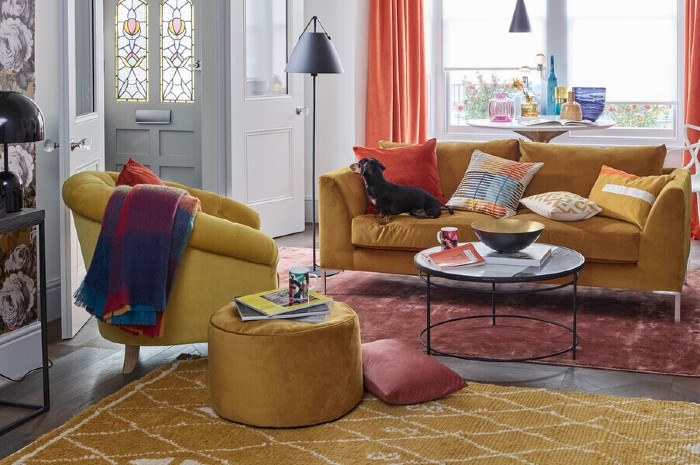As the UK continues on its post-Covid recovery path, it’s arguable that consumers are now searching for two qualities in retailers: sustainability and cost-effectiveness. It just so happens that furniture rental services offer these.
The stigmas associated with renting furniture are slowly fading, particularly as rental fashion services such as Hurr and By Rotation emerged as strong players in the sector following the accelerated shift to online brought on by the pandemic.
Currently, there are four furniture rental services in the UK – John Lewis, Harth, Modern Art Hire, and Fat Llama.
Renting furniture is an attractive option for those who want to try out different furniture styles, and are unable to hunt and shop for furniture. Brits have also become more concerned with how the their homes looked after enduring various lockdowns, tiered restrictions and stay-at-home orders.

Jonathon Warren, commercial director at luxury furniture retailer LuxDeco, argued that consumers were becoming “increasingly aware of their carbon footprint and rental offers a great way to reduce this whilst also keeping their homes up to date with the latest trends”.
“Consumers are also becoming more rental savvy with new platforms making it easy to rent almost anything from drones too haute couture,” he told Retail Gazette.
While clothes were once the signifier of personal style, houses have increasingly become the number one thing to be showcased. In fact, the hashtag #interiordesign on Instagram loads almost 90 million curated posts of colour-coordinated bedrooms and living rooms.
Covid-19 has presented retailers with various challenges, mainly adapting to ongoing changing consumer demands. Most recently, John Lewis announced it would expand its furniture rental service by doubling the range on offer, after last year’s trial proved a success.

The department store retailer said last week that the range on offer through its rental service would now grow to 200 furniture lines, ranging from bed to bar stools, and sofas to dining tables.
Previously only available in London, the service would also be extended to John Lewis customers outside the capital.
The retailer added that last year’s rental trial, through which it partners with Fat Llama, saw almost all of of its rental collection snapped up within the first 48 hours.
John Lewis home furnishings head buyer Nicola Waller said furniture rental offered “quick convenience” and any need for long-term commitment.
“It is also a sustainable choice for our customers and the expansion of our rental scheme reflects our ambition to offer more sustainable ownership options and forms part of the commitment we made to our customers that all of our John Lewis product categories will have a ‘buy back’ or ‘take back’ solution by 2025,” she said.
Meanwhile, some retailers have backtracked on their decision to launch furniture rental services.
Prior to the pandemic in 2019, Made.com said it was exploring a move into rental furniture as the online retailer focused on “generation rent” and the rising number of people who cannot afford to buy a home.
Alison Hughes, interiors director at furniture retailer Coast Road Furniture, said there was clearly a market for furniture rental, especially among a younger demographic.
“With house prices rising at the fastest pace in 17 years, it is becoming even more difficult for first-time buyers to get on the ladder,” she argued.
“That means more and more people are between properties, usually in short-term lets with short-term needs.
“Of course, rental furniture also caters to those in their own properties who like to change up their interior style often.
“And, since we’ve all been stuck inside for the past year and a half, more homeowners are growing bored of their interiors and are opting for a fresh new look.
“Consumers are becoming more rental savvy with new platforms making it easy to rent”
“With rental furniture, you can do this without the hefty price tag.”
Declining levels of property ownership had persuaded Made.com to experiment with leasing furniture to customers. Chief executive Philippe Chainieux said at the time that people were now renting things.
“They don’t want to spend as much money if they are not somewhere permanent but they do aspire to own nice things, so we are working out how to respond to that demand in a sustainable way,” he had said.
Made.com told Retail Gazette that “it may be something we consider in the future but at this time there are no plans for this to be an option”.
The online retailer is not the first furniture specialist to consider rentals. Swedish giant Ikea announced plans for a furniture rental service in February, among other avenues to help diversify its business model and revenue streams.
In 2019, Ikea said it wanted to roll out furniture rental to 30 different markets – but the UK was not included in the list. This could indicate that the British consumer was looking for more than just renting furniture.
An Ikea spokesperson told Retail Gazette: “We are currently not planning to roll out the service in the UK and Ireland, focusing instead on other Circularity initiatives, such as our recently launched BuyBack scheme, whereby Ikea stores buy back unwanted furniture from customers and re-sell as second-hand.
“With furniture leasing, we’re testing a more circular way to use Ikea furniture. The goal is to improve flexibility for customers, extend the life of products and reduce waste by enabling the same product to have several lives.
“Globally, seven Ikea countries have been involved in furniture leasing tests, and we’ve trialled different subscription models for business customers and students.
“The core idea is that customers lease the furniture, which we maintain and repair as needed during the leasing period. Upon return, we clean, refurbish and make the furniture ready for its next rental.”
A furniture rental service may not be for every consumer, just as fashion rental is not the choice for everyone.
Nevertheless, the delivery fees, deposit, insurance, monthly base rent, interest, online payment charges, service charge, and a host of smaller monthly fees may be enough to deter unfamiliar consumers.
However, furniture rental gives consumers the freedom and flexibility to figure out what comes next without investing too much time or money in moving or buying furniture – which is the ultimate solution for post-Covid customers.
Despite the growth, furniture rental services are arguably far from joining the acclaim of fashion rental services as renting a sofa is a much more strenuous task than renting a shirt.
Click here to sign up to Retail Gazette’s free daily email newsletter
The post Is rental furniture up and coming in retail? appeared first on Retail Gazette.
from Retail Gazette https://ift.tt/3dwYz8K
via IFTTT
Comments
Post a Comment